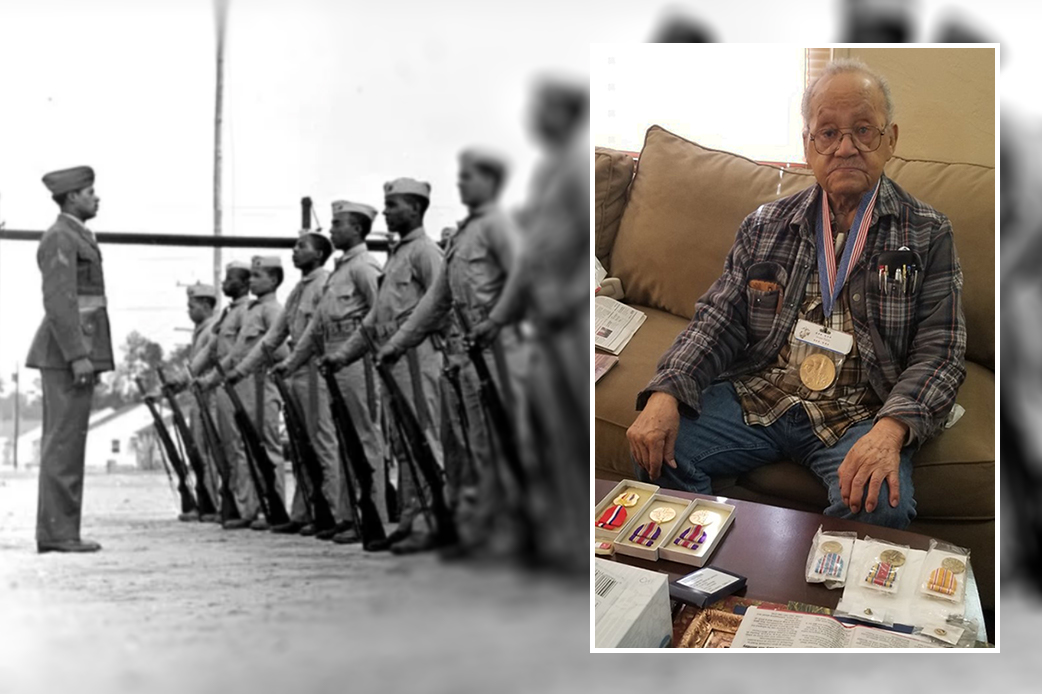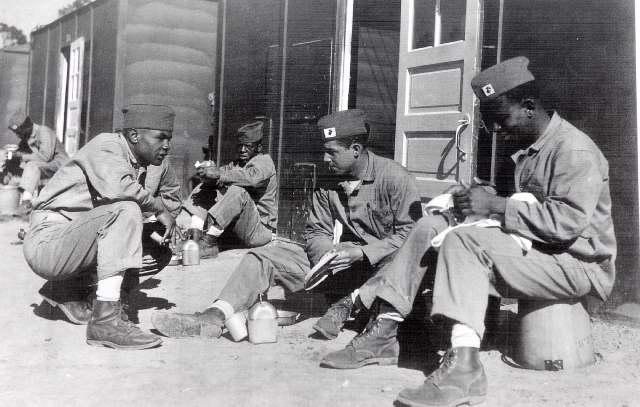
Luther Hendricks was just a teenager when the attack on Pearl Harbor happened. He says he was determined to fight to save his country from the enemy.
"Once President Roosevelt declared war, I went down the next day to the recruiting station to join up, and I was told they didn't take coloreds in the Marines," Hendricks said.
But as the war effort ramped up, the armed services began following an order from President Franklin D. Roosevelt to open all branches of the U.S. armed forces to African Americans. Hundreds of Black enlistees were accepted into the Marine Corps, though they were segregated from white troops.
White Marines were trained at Camp Lejeune in Jacksonville, North Carolina. Black men went through grueling training at nearby Montford Point.
"We weren't allowed to go train with the white Marines, which was just across the street from us at Camp Lejeune," Hendricks said. "We weren't allowed to go over there unless we had a white officer to go with us."
At Montford Point, servicemen like Hendricks endured substandard conditions and racism.
"We were always talked of as 'boy,' 'colored people,' 'you people,'" Hendricks said. "Never... a man or a person, you know."

But Hendricks and his fellow Marines were not deterred.
Between 1942 and 1949, 20,000 Black Marines trained at Montford Point. The Montford Point Marines, as they're known, went on to be celebrated in military history. Like the famed Tuskegee Airmen, they too were trailblazers.
After training, Hendricks saw a long tour in the Pacific - Guam, Saipan, Iwo Jima, Okinawa and elsewhere.
While he was happy to return home after the war, there was still work to be done when Hendricks got back.
"We fought segregation fighting over there, and we fought segregation when we got back home over here," he said.
Hendricks said he would have liked to continue his military career when he returned from the war, but was met with closed doors yet again. He went on to work as an electrician's assistant and has lived in Vallejo, California since he came back.
More than six decades later, Hendricks and his fellow Montford Point Marines were awarded the Congressional Gold Medal.
"In the time of these Marines -- in the age of inequality, breaking the color barrier in the Marine Corps took nothing less than perseverance, patriotism and courage of extraordinary proportions," said California Congresswoman Nancy Pelosi during the ceremony.
"That was a great day, I just can't say enough about that," Hendricks said.
For his part, Hendricks said he was never expecting to be awarded one of the nation's highest honors, especially since he and his fellow Black Marines were treated unequally by the service.
"I have people in the service now -- like when I went back to Washington -- come up and said 'thank you for paving the way because I wouldn't be where I am without you.' And that makes you feel good," Hendricks said. "But as a country, we still got a ways to go. We see changes coming now, but it's slow."
These days, Hendricks says he enjoys traveling as much as possible, before the pandemic anyway. And he's proud of his grandkids, great-grandkids and great-great-grandkids.
This Veterans Day, Hendricks says he'd like Americans to remember the determination of the Montford Point Marines and others during WWII.
They deserve to be honored, he said.
This story was produced by the American Homefront Project, a public media collaboration that reports on American military life and veterans. Funding comes from the Corporation for Public Broadcasting.
Copyright 2020 North Carolina Public Radio – WUNC. To see more, visit North Carolina Public Radio – WUNC.

9(MDEyMDcxNjYwMDEzNzc2MTQzNDNiY2I3ZA004))







